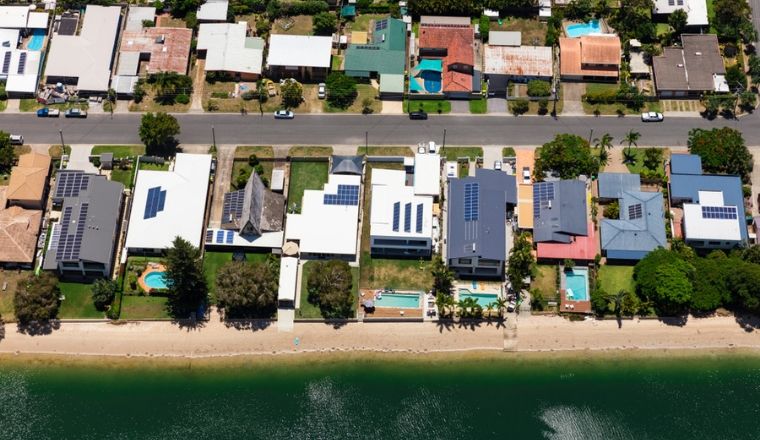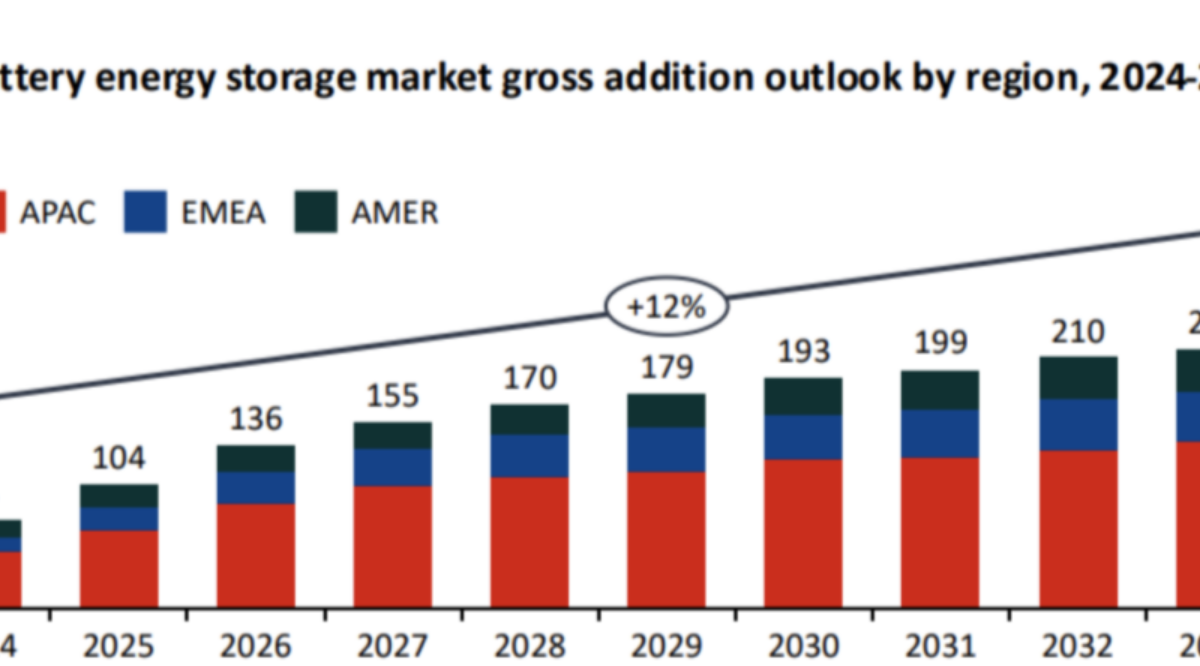The full economic fallout of Covid-19 will not be understood until we can catch our breath without breathing through a mask. However, two interrelated global trends in the energy sector we are seeing as a result of Covid-19 are the accelerated integration of the digital toolkit throughout the process of solar uptake, and the general shift of trust from distant abstractions to local sureties, this is to say, away from giant energy generators to self-generation, and away from politics on scales too big to govern and toward local government.
Worldwide, people are beginning to realise that the 21st century will likely prove the century of biological epidemics, as the 20th century was the century of ideological epidemics. With this realisation we are starting to reevaluate what the real necessities of our survival are. When a pandemic takes the breath out of the global economy, leaving you stuck at home with reduced access to income, you begin to realise the vital importance of self-sufficiency and, therefore, the necessity of generating your own energy. As the great 20th-century logician Bertrand Russell once noted, “nothing finite is self-subsistent.” This is to say, only the infinite, the renewable, is self-subsistent. Down to the level of the individual, Covid-19 has shown us just how precarious and uncivilised a dependence on exterior and finite resources really is.
Digital Toolkit
In the solar industry, the necessities of mettle spurred by Covid-19 have proved especially stimulating for the efficiency of the sales process. While the solar industry is still developing globally, the more streamlined the process of solar uptake, the more accelerated the growth and the better off we’ll all be. In these uncertain times, one of the great things about the rise of solar is that it brings solace.
Andrew Birch, co-founder of OpenSolar, a partner of Nearmap, speaking at Nearmap’s recent customer event Navig8, said that “in a challenging time, the time where risks (perceived or not) feel higher, having the ability to generate energy from panels on your roof and then store some of that energy in a battery system so that you can generate your energy in case of emergency is quite compelling for the customer right now.”

Image: pv magazine
Even ten years ago, when residential rooftop solar was still nascent relative to its potential growth, if a customer wanted to install solar on their rooftop they would first have to contact an installer, then the installer would have to come by in the ute to climb up on the roof and measure out a possible system.
Now, with OpenSolar and Nearmap, or, alternatively, through the use of drones such as with DroneDeploy, precise imagery is now available to installers and customers at the push of a button, ensuring accurate measurements, as well as time and financial savings for everyone.
It’s what’s on the surface that counts
Another, albeit less illuminating, source of solace in the 21st century is the knowledge, despite appearances, that we haven’t changed that much as a species. Which is to say, we’re still obsessed with appearances.
Indeed, we are so obsessed with appearances that many potential solar customers, aware of the potential savings provided by owning their system, balk at the prospect because they think an array of panels on their roof would look unseemly.
Curing these potential customers of the ignorance of their aesthetic prejudice is one of the many utilities OpenSolar and Nearmap can provide. As Birch notes, “the home is usually the biggest asset a family has, and so how those panels appear on the roof is important to them, so being able to present that with hi-resolution imagery and a beautiful presentation is also part of compelling customers to see the real value of the solar proposition.”
Another city, another country
In the early 1960s, Canadian philosopher and technologist Marshall McLuhan rightly predicted the Global Village effect in his book The Gutenberg Galaxy. The Global Village effect being the seemingly paradoxical notion that as the world became more globalised, our quotidian lives would actually revert to the local. As we all know, too well perhaps, the globalised economy can provide for any of our wants and needs and provide it to our doorstep. But we also know that it can bring a pandemic to our doorstep too, and send us careering into localised isolation.
On a political level, while we are faced with global issues such as climate change, we are finding national and global institutions frustrated, and local government rising to the fore. Take, for instance, The Climate Council’s Cities Power Partnership, a climate alliance of over 125 councils across the country representing almost 13 million Australians, which recently hosted, “Re-energise Australia: A clean Jobs Summit”. Speaking at the event was Mark Watts, Executive Director of C40 Cities, an alliance of 96 of the world’s major cities devoted to climate action and a sustainable future. Cities which include, Sydney, Melbourne, Los Angeles, and, Wuhan.
Watts said that when it comes to the opportunity of green recovery promoted by the Covid-19 pandemic, it is local government that is standing up. “In the last six months the pandemic has underlined the ability, and desire, of mayors to collaborate globally to solve local problems and improve all their cities,” said Watts. “It’s a real testament to the survival of multilaterialism which is under threat from failings in the intergovernmental arena.”

Image: Cities Power Partnership / YouTube Screenshot
“And we’ve seen in all jurisdictions a surge in public support for public institutions, often for government at the local level, even if they’re not satisfied with the performance at the federal level, and a recognition of the importance of community and collaboration in creating better societies.”
C40 has just released its “Agenda for a Green and Just Recovery” a “playbook” for delivering an equitable and sustainable recovery from Covid-19 for mayors around the globe. Along with creating new green jobs and helping to train and ‘upskill’ workers to enable a just transition and an inclusive economy, the “playbook” looks to create ’15 minute cities” where all residents can meet most of their needs within a short work or bike ride, a Global Village indeed.
Essential to the “playbook” however, and this is not negotiable, is that any and all stimulus for the recovery from Covid-19 must be green. Considering the gas-lead recovery Australia’s federal government are currently considering it is obvious why public trust is deteriorating at the federal level and focusing locally.
Watts stressed that what we need now is mayors and local governments willing to put their best foot forward. The point was well emphasised on the day with the announcement that Sydney councils are doubling their solar generation on accelerated paths to carbon neutrality.
David O’Loughlin, President of the Australian Local Government Association (ALGA) and Mayor of the City of Prospect in South Australia, also spoke at the Cities Power Partnership Summit, making note of the work being done by councils around Australia such as Townsville City Council developing a sustainable manufacturing, processing and technology hub, Perth, implementing a climate change mitigation policy which aims to reduce 30% of its citywide emissions by 2030, Jamestown, which installed floating solar panel plant on top of a water treatment plant.
“The impact of recent events has caused councils to think more deeply about what role they can play more broadly,” said O’Loughlin. “Tackling climate change is not new to councils – in fact some have led the way with piloting programs around water retention, solar generation and coastal protections.”
This content is protected by copyright and may not be reused. If you want to cooperate with us and would like to reuse some of our content, please contact: editors@pv-magazine.com.









Stopped in the middle. This article looks more like a Nazi/soviet/uncleSam propagand in times of WWII but this time pushing for the phallacy of the “pandemic”. Covid-19 did not cause businesses to go bankrupt, it didn’t cause unemployment, hunger, desperation, death. Corrupt governments (sorry for the pleonasm) did the above. Multinational corporations did the above. Evil people pursuing an agenda of eugenics, communism and fascism did the above. This article just whitewashes them and puts fault on a “new era of biological epidemics”.
I wonder how much the UN/WHO/Amazon/Bill Gates or any other of those sick, deranged psychopaths pay to have articles like this written. Or they just hand the script? Shame on you pv-magazine.
I think you mean ‘tautology’ rather than ‘pleonasm’, but regardless, thanks for at least reading up to the middle, the best we can do is meet each other halfway.